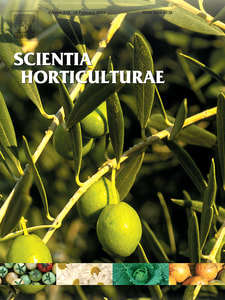 Compost tea as a sustainable alternative to promote plant growth and resistance against Rhizoctonia solani in potato plants Scientia Horticulturae June 2022 Link Here If there is anything the world needs right now it is better quality potato chips and french fries. This is not debatable. In order to move the needle forward, a group of scientists from the University of Salamanca in Spain, developed a potato growth trial that looked at how the delicious dirt nuggets performed when given compost tea. The aerated compost tea was made with green-waste materials (tree and grass clippings) that went through a full thermophilic composting cycle, producing a stable, finished, rich black gold . The study was done with both pot and field experiments, and with and without the addition of the disease causing fungus, Rhizonctonia solani. In these experiments, various concentrations of compost tea were watered into the pots of field. In the pots, 9 plants were transplanted, and into the fields about 60 small potato tubers were planted per square meter. They also performed a sprouting trial, where pieces of potatoes (french fry seeds?) were planted into a sterile potting soil mixture, watching for how quickly and robustly the potato pieces sprouted. The pots got two applications of tea, while the field was irrigated with tea every two weeks. The potato pots and the field plants were allowed to grow for about 4 months, or until the above ground plant material began to die off and indicate the potatoes below were ready for pickin', The sprouting trial ran for 1 month. After counting sprouts, harvesting the finished tubers, weighing, measuring, frying, and (probably) tasting, the scientists used statistics to conclude that compost tea did indeed improve and protect the potatoes. The tater-tot-debilitating disease Rhizoctonia had its severity drastically reduced. The quality of the potatoes was improved by tea as well, seen as increased moisture content, and, most importantly, better fry-ability (seriously, bad potatoes discolor when they are turned to chips, the tea-treated potatoes were of better fry quality). Regarding the sprouting trial, the compost tea treatment caused more sprouts to arise from the potato plugs, with more leaves, vigor, and height. Most importantly, yields were increased. More potatoes is good for everyone. The Spanish scientists have contributed to the ever growing body of research on fried potatoes. This is the sort of information that will lead us into a productive, potato-rich future. Thanks to those who put in the effort necessary to increase our ability to enjoy the simple, yet globally important tubers. Look out for a future blog post on improving ketchup quality through tea- treated tomatoes.
0 Comments
Your comment will be posted after it is approved.
Leave a Reply. |
Archives
June 2024
Categories
All
|
Contact Us
Why TeaLAB?TeaLAB is committed to helping people and their gardens to become more self- sufficient, healthier, and productive. Grow your sweetest corn, your biggest watermelon, your tallest quinoa, your tastiest tomato, and your happiest you.
TeaLAB was founded to teach people how to garden organically, so that we can become more closely connected with the land. Our goal has been to simplify growing methods so that gardeners have a positive experience in the garden. TeaLAB is where the garden meets the laboratory. From around the world and into your backyard, our products contain ingredients that are sourced both locally and globally. Using methods both ancient and cutting edge, TeaLAB promotes maximum biology. Grow with TeaLAB. |

 RSS Feed
RSS Feed
